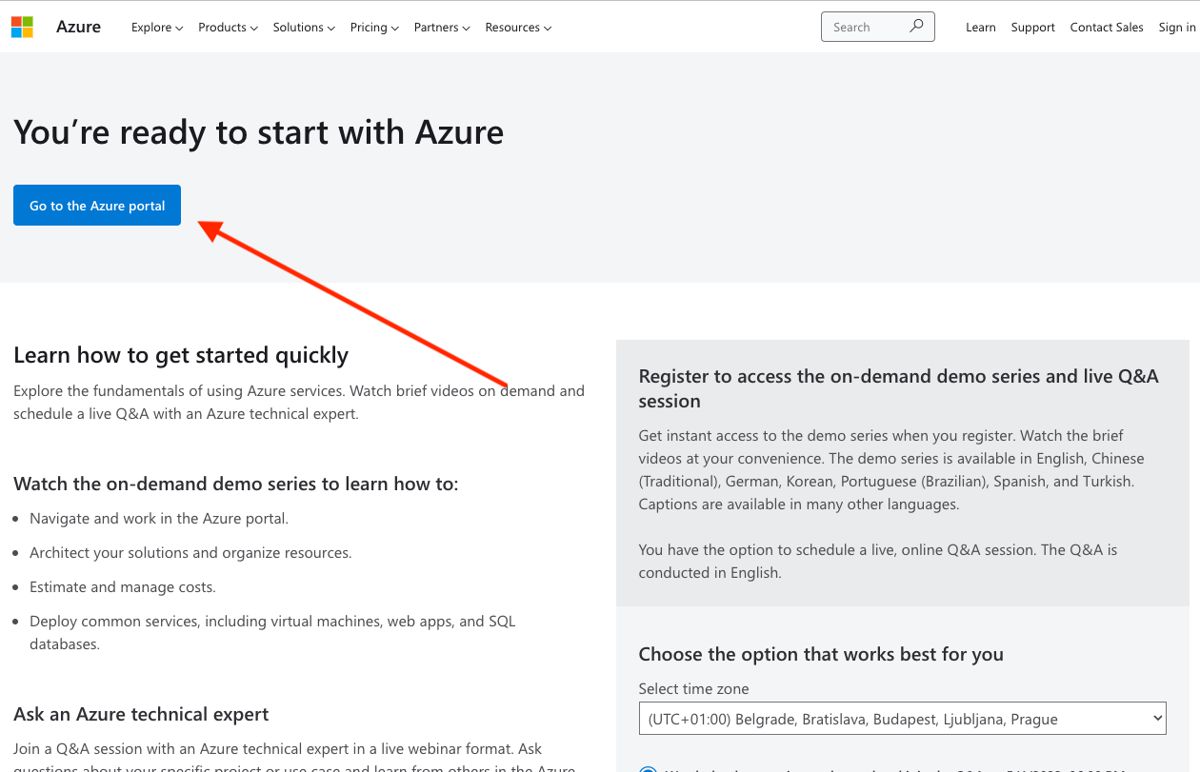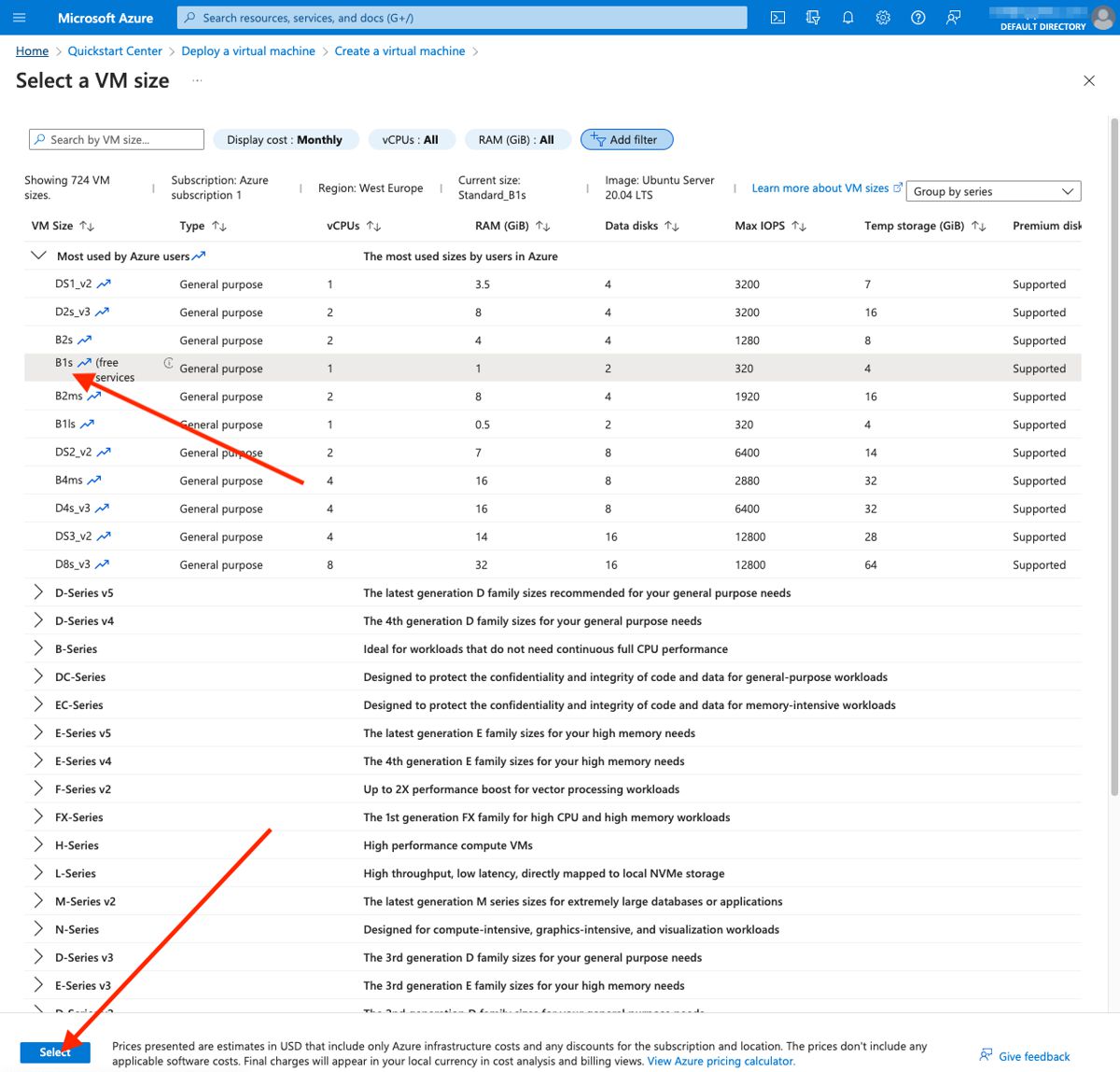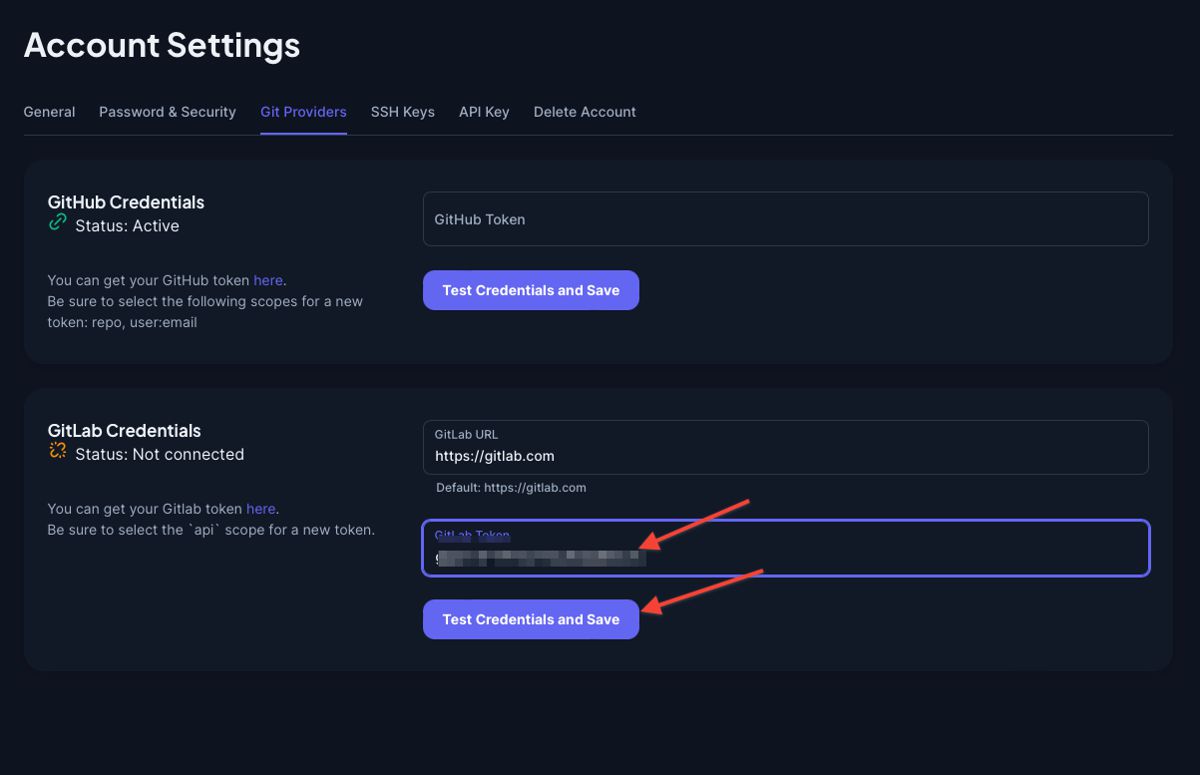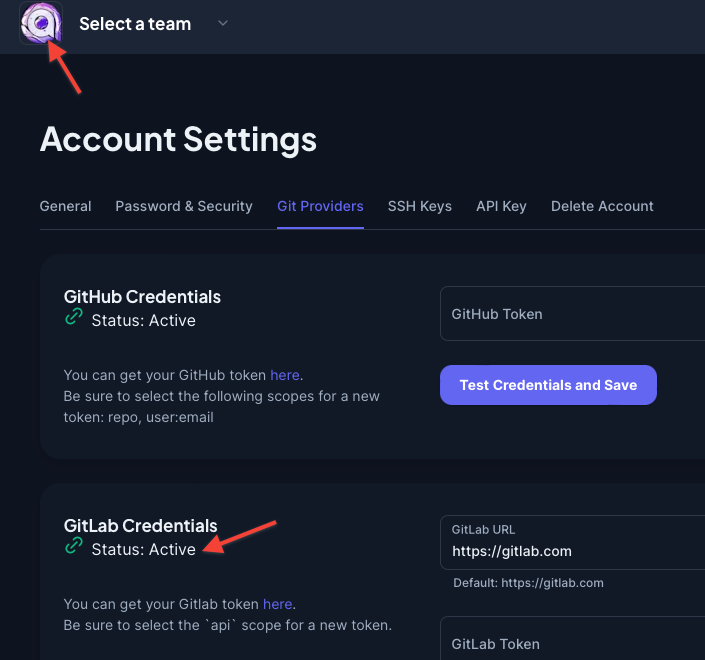Azure is a cloud computing platform offered by Microsoft that provides a wide range of services and features for building, deploying and apps and services in the cloud.
If your application needs to interact with Azure's AI and ML services then it makes sense to deploy your Django app to their infrastructure.
In this article you will see how to deploy your Django application on Azure VM.
If you are looking for tutorial for another cloud provider checkout out one of these:
- Deploy Django on Hetzner Cloud
- Deploy Django to Digital Ocean Droplet
- Deploy Django to AWS Lightsail
- Deploy Django to AWS EC2
- Deploy Django on Linode
- Deploy Django to Google Cloud Platform
Table of contents¶
Requirements¶
- An application to deploy
- Appliku Account
- Azure Account
Django Application¶
The application used for this tutorial can be found here: https://github.com/appliku/djangotutorial
Your app should be pushed into a git repository. You can use GitHub, GitLab.
For ease of deployment we have the following recommendations:
- have the
requirements.txtfile in the root of your git repository. Don't forget to addgunicorn(or alternative) andpsycopg2-binary==2.9.5for Postgres support (orpsycopg[binary]) - Your app needs to respect environment variables like
DATABASE_URLfor the database credentials,ALLOWED_HOSTSfor the list of allowed domains,SECRET_KEYandREDIS_URLif applicable. - Please, don't forget to have DEBUG turned off when you deploy to a publicly accessible environment.
We have a full How to Start and Deploy a Django Project if you want to learn more
Also: check our SpeedPy.com SaaS boilerplate
Appliku Account¶
If you don't already have an Appliku Account create it by going here: https://app.appliku.com/
Click on "Add a server"

Pick a Custom Server:

Select this key, we will need it at server creation step.

Azure account¶
If you don't already have an Azure account you should sign up here.
When you created your account, log in and you will see a welcome screen. Click on "Go to Azure portal"

Click on "Deploy a Virtual Machine"

Click "Create" under "Create a Linux virtual machine"

You will see the page "Create a virtual machine" with a lengthy form fll of options.
First, create a new "Resource group" by clicking "Create new"

Write a name for it and click OK

Scroll down, and in the section "Instance details" give server a name and select a region for your server.
For the "Image" option chose Ubuntu 20.04 LTS
Scroll down and find "Size". Click on "see all sizes" and pick the one that suites your needs. For the purpose of this tutorial we will pick the one market "Free services" and click "Select"

For authentication type choose "SSH public key".
You can leave "azureuser" for the "Username", you can't specify "root" here.
Add a public key given to you in the Appliku dashboard earlier.
For the "Public inbound ports" select Allow selected ports and in the dropdown select HTTP(80), HTTPS(443) and SSH (22)
Then click "Review + create"

You are presented with the overview of a server to be created. Click "Create" at the bottom of the screen.

Azure VM creation will begin. Wait for it to finish.

When the server is created – click on Go to resource.

You will see the overview of the server. We need the IP address of the Azure VM.

It is on the right, hover over the IP address to see the copy icon. Click on it to copy.

Go back to the Appliku Dashboard and paste IP address and type "azureuser" for the username and click "Check credentials and add server"

You will see that server is added and soon will start setting up.
Watch for "Setup Status" changes. Wait for it to become "Finished". It will take a few minutes as Appliku is installing and configuring all the packages. If "Setup Status" will become "Error" check the tab "Setup Logs" for errors.

When server setup is complete and server is ready to deploy your apps you will see server resources gauges come to live.

Time to deploy our Django app!
Create a Django Application on Azure¶
Click on the "Applications" menu link

You will get to the Git Provider selection.

Creating application from GitHub¶
Select the "Setup Credentials" for GitHub.

You need to get a personal token from GitHub.
Go to this link to create a token: https://github.com/settings/tokens

Click on Generate new token -> Generate new token(Classic) Fill in the note, select expiration date, check the "repo" checkbox and "user:email"


And click "Generate token".
Copy the token from the next page.

Go back to Appliku dashboard and paste the GitHub Token, and click Test Credentials and Save

Status must change to "Active".
Click on the logo in top left corner to get back to your team and go to Applications again and create an app, select GitHub.

Fill the form with the app name, select the repository with your application, branch and select the server, click on "Create Application".

You will see your app has been created, but not yet deployed.

Creating application from GitLab¶
Alternatively if you use GitLab you should add credentials for GitLab and create an app from GitLab.
Go to Applications menu link, Click "Add Application" and Setup credentials for GitLab.

You need to create a Personal Access Token here: https://gitlab.com/-/profile/personal_access_tokens
Give the key a name, set or clear expiration date, select "api" checkbox and click "Create Personal Access token"

Copy the token and paste it in Appliku dashboard.

After you click "Test Credentials and Save" the Status should turn green and say "Active".

Click on the logo to go back to your team, go to Applications, Add Application and select GitLab

Give your application a name, pick repository and the branch, select the server and click "Create Application"

Setup the app¶
Databases¶
First, create a Postgres Database. Click on Add Database on the right

Select the Postgres 16 option and click "Create database"

Your database will start deploying, wait for the deployment status to become "deployed".

Define processes¶
Let's tell Appliku how to run your app
On the Application Overview page you will see a red triangle saying "No processes found".
Click on the "Add Processes" button.

Add two processes:
- one MUST be called
webto answer to HTTP requests and command should begunicorn project.wsgi --log-file -(pay attention to the last dash). It can be slightly different for your project - second one MUST be called
releaseand this is the command that will be executed after each successful deployment. If not specified it will default topython manage.py migrate. I recommend to create a bash script if your app needs to run several commands executed on each release. In our example, the command isbash release.sh
Click save and deploy button, a deployment will start.
Environment variables¶
Go to the "Environment Variables" tab and add env vars needed for your project.
At least specify the SECRET_KEY and ALLOWED_HOSTS.
These variables should be used by your app you can check here how to do that: https://github.com/appliku/djangotutorial/blob/master/project/settings.py
The SECRET_KEY variable value should be some long hard to guess string.

The ALLOWED_HOSTS variable should be a list of domains on which your app is accessible. As I already mentioned above, don't hardcode this, but make your app respect this environment variable.
By default, each app in Appliku receives a subdomain APPNAME.applikuapp.com, so in our example it should be mydjangoapp.applikuapp.com. If you add custom domains, make a comma-separated list like this mydjangoapp.applikuapp.com,example.com,www.example.com.
You can disable the default subdomain in build settings.
When you are finished with environment variables click the "Save and deploy" button and deployment will start.
Reviewing application logs¶
From the Application Overview page you can go to App Logs to check if there are any errors.


Open your application¶

To access your app click on "Open App" and click on the domain name. It will open your app in a new window.